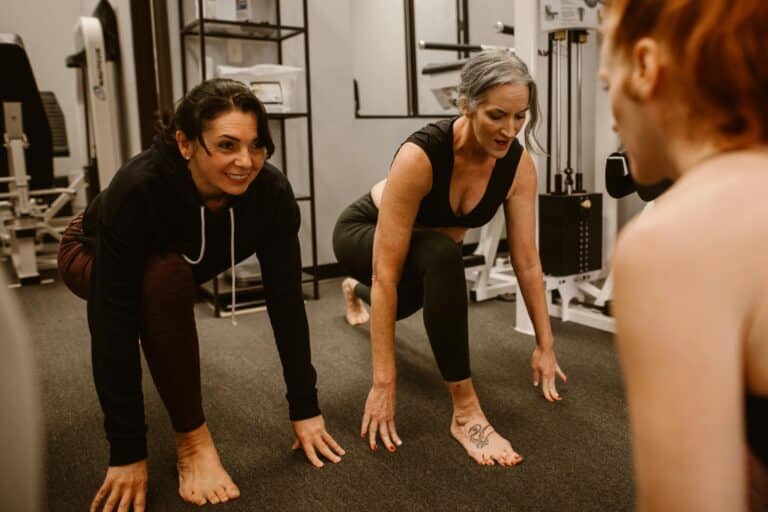Acupuncture eases chemo-related pain, fatigue and nausea
A component of traditional Chinese medicine, acupuncture has been well researched in Western medicine and noted as safe and effective. It offers such a proven benefit as a complementary cancer therapy that it is offered in many major cancer centers as an adjunct to conventional care. In a study of 300 breast cancer patients published in the Journal of Clinical Oncology, researchers found that acupuncture was effective in managing the symptoms of cancer-related fatigue and improving anxiety, depression and quality of life.
“Acupuncture is a very holistic form of healing and a wonderful way to enhance health. Not only have I seen, time and time again, evidence of it helping people physically, it is a really wonderful modality that helps people emotionally, too,” says Angela Johnson, MSTOM, MPH, LAc, Dipl OM national board-certified practitioner of Chinese medicine at the Cancer Integrative Medicine Program at Rush University Medical Center.
“Because acupuncture helps to release serotonin—a hormone that, among many things, affects mood and well-being—it helps patients feel relaxed. Patients say that acupuncture takes the edge off. It helps ground them at a place of relaxation instead of being at a high level of stress all the time,” Johnson says. “And being able to help patients [achieve] this is beneficial because it can have positive ripple effects on many levels: physically, mentally, emotionally and spiritually.”
It helps to release natural hormones, like serotonin and endorphins, that can block pain messages and reduce inflammation, says Karen Elarde-McCuaig, RN, BS, OCN, MSOM, LAc, clinical nurse manager at the Oncology Center at Weiss Memorial Hospital.
“Acupuncture needles may stimulate nerve endings in the skin, sending impulses to the brain that result in the release of pain-easing beta-endorphins, hormones and neurotransmitters,” Elarde-McCuaig says. Brain scans have shown that acupuncture blocks the flow to pain centers in the brain and decreases pain messages to the body.
Acupuncture meridians are believed to connect to internal systems throughout the whole body. For example, an acupuncturist can release pain in the upper back by stimulating the lower foot.
The extreme bone pain from multiple myeloma rocks Van Soil, a 64-year-old Chicago resident, daily. It feels like his blood is on fire in his veins and in his bones.
Calling himself “a great experimenter,” he decided to give acupuncture a try.
“It feels like electricity running through your body. It doesn’t hurt,” Soil says. “Then afterward, you feel better. It’s like it takes some of the pain with it when it leaves. It feels strange; not painful, but strange. You get feelings you never had before. She’ll put a needle in somewhere, and a muscle relaxes somewhere else.”
For Ann Lloyd, a 65-year-old River Forest resident with lung cancer, the combination of chemotherapy and acupuncture is making a difference.
“I had six [acupuncture] treatments so far, and I can really see a difference in every aspect of my overall being,” Lloyd says. “It’s amazing. The acupuncture has helped me breathe better, and the depression [and mood swings] have subsided considerably since the acupuncture treatments began.”
Angela Johnson, Lloyd’s acupuncturist, puts needles near Lloyd’s chest, in her arms, her ears, a few on her head, below her knee and above her ankle. “You don’t feel it, though; they’re really tiny,” Lloyd says.
“My energy level is up. My immune system is working better. I haven’t been sick since February—no more headaches—those [were] all side effects from chemo. I would highly recommend it to anyone in cancer treatment. It relaxes you. It gives you energy.”
Acupuncture has been shown to resolve other issues as well. “She’s been treating me for smoking cessation, too. I have absolutely no desire to look at a cigarette. Before, I was a pack-a-day smoker.”
Marta Batus, MD, a medical oncologist specializing in lung cancer and sarcoma, and an associate professor of medicine at Rush University Medical Center, sees that acupuncture, along with chemotherapy, is helping Lloyd heal.
“Part of it is that her cancer is responding [to chemotherapy treatment], but I believe that the acupuncture helped her a lot with some of the other symptoms including fatigue during treatment,” Batus says. “She has less pain; she has [fewer] symptoms during treatment; she has a better mood; she’s less depressed. I’ve seen a similar improvement in other patients as well. I cannot say that it helps with reducing the cancer because all of these patients are on active treatment for their cancer, but it certainly does help with healing.”
At Northwestern Medicine, acupuncture is offered in the chemotherapy suites at Prentice Women’s Hospital and at the Robert H. Lurie Comprehensive Cancer Center while the patient is undergoing chemo infusions.
Tatyana Shafiro, LAc, MS, a licensed acupuncturist with the Osher Center for Integrative Medicine at Northwestern Medicine, starts her day by walking around the cancer floor to talk to patients about acupuncture and to see whether they are interested in treatment.
“A lot of people who are there never had acupuncture, and they are willing try it,” Shafiro says.
“It helps them to take their mind off of the actual infusion. Acupuncture, in general, has a relaxation effect” and helps to relieve intense pain and may have other health benefits since there is more to acupuncture than relief of stress and pain, she says. While patients are having their chemo administered, Shafiro offers them acupuncture at the same time. For the needle averse, needleless laser therapy can stimulate acupuncture points and release endorphins.
The effects can be transformational, Johnson says.
“When acupuncture is able to reduce levels of pain, people will often say, ‘I feel like I have myself back. I feel more relaxed. I feel less stressed out. I feel less pain. I feel like I can do more with my daily life. It feels so good to be driving again. It feels so good to be with my friends and have dinner again,’” Johnson says. “It helps them feel like themselves.”
Originally published in the Fall 2015 print edition.










